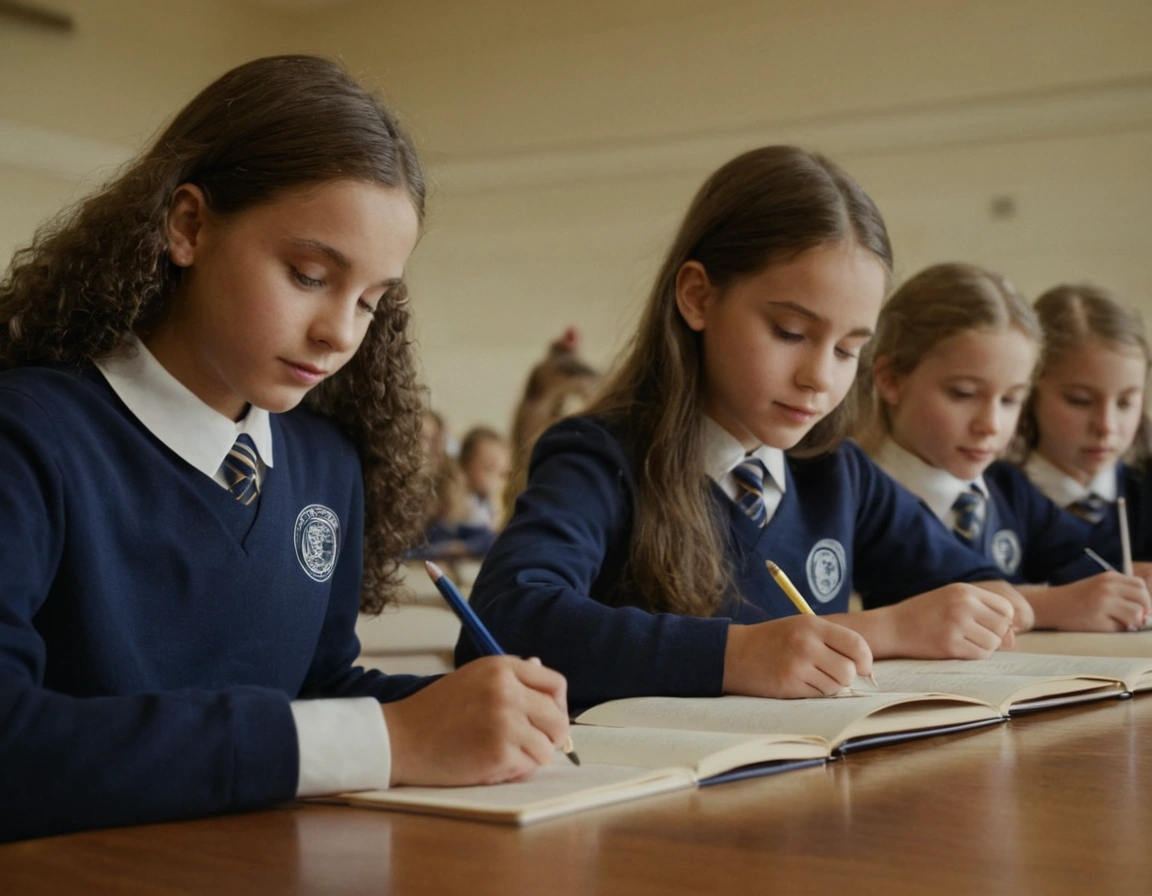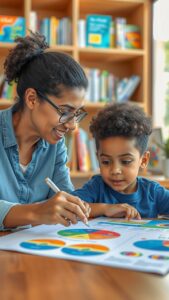Welcome! If you’re a parent, teacher, or student exploring private school education, you’ve probably heard the term “Individualized Education Plan” or “IEP.” IEPs are carefully crafted, student-centered plans designed to help each child thrive academically and personally. In private schools, IEPs are more than just tools—they’re comprehensive, customized approaches that cater to each student’s learning style, strengths, and needs.
In this article, we’ll explore how private schools utilize IEPs to provide top-notch education and support every student. By understanding how these plans work, the types of support they offer, and the benefits they bring, you’ll gain valuable insight into why IEPs are key to unlocking student success in private school settings. Ready to dive in? Let’s discover how private schools leverage IEPs to help every child reach their full potential.
How Private Schools Use Individualized Education Plans for Student Success
1. What Are Individualized Education Plans (IEPs)?
An Individualized Education Plan (IEP) is a customized document that outlines specific educational goals, strategies, and supports for a student. IEPs are commonly used for students with learning differences, behavioral challenges, or unique talents. While they are often associated with public schools, private schools increasingly use IEPs to support students’ needs and provide a nurturing learning environment.
In private schools, IEPs may go by various names, such as personalized learning plans or student success plans, but the goals remain the same: to adapt teaching methods, set achievable objectives, and provide resources that allow students to succeed. Each plan is crafted with input from teachers, parents, and educational specialists, ensuring that every student receives the support they need.
2. Identifying Students Who Benefit from IEPs in Private School
Private schools use various assessment tools and observation techniques to identify students who may benefit from an IEP. These assessments might include academic evaluations, behavioral observations, and consultations with parents. Students who may benefit from an IEP often display specific characteristics, such as unique learning needs, attention-related issues, or social-emotional challenges.
Once a need is identified, private schools can collaborate with educational experts to determine the best way to address the student’s needs. The flexibility of private school environments often allows for quicker implementation of support systems, creating an effective pathway for student success.
3. Developing Customized Goals for Each Student
One of the most critical components of an IEP is the development of individualized goals. In private schools, these goals are often based on a detailed understanding of the student’s strengths, areas of improvement, and interests. Goals might range from academic targets, like improving reading comprehension, to social-emotional objectives, like building self-confidence or managing stress.
Teachers and specialists work with parents and, when appropriate, with the student to establish measurable and attainable goals. By tailoring these goals to each student, private schools help create a roadmap for success that aligns with the child’s unique learning journey.
Key Components of Individualized Education Plans in Private Schools
| Component | Purpose |
|---|---|
| Personalized Goals | Sets measurable academic and behavioral milestones for each student |
| Support Strategies | Provides resources like tutoring, counseling, and specialized instruction |
| Assessment and Feedback | Ensures continuous tracking of progress to adjust goals as needed |
| Collaboration with Parents | Keeps parents engaged, informed, and involved in their child’s education |
| Flexibility in Instruction | Adapts teaching methods to fit the student’s unique learning style |
4. Collaboration with Parents and Teachers
In private schools, the relationship between parents, teachers, and students is central to the success of IEPs. Teachers and educational specialists meet with parents regularly to discuss the student’s progress, address challenges, and celebrate achievements. This open line of communication ensures that parents feel involved and aware of their child’s development.
Private schools also encourage parents to contribute ideas, share concerns, and participate in decision-making. This partnership allows for a more holistic approach to education, where parents and educators work together to support the student’s growth.
5. Flexible and Adaptive Teaching Methods
Private schools frequently have more flexibility in their teaching methods than public schools. For students with IEPs, this means that teachers can adjust lesson plans, use different instructional tools, or create alternative assessments based on the student’s needs.
For example, a student with ADHD might benefit from lessons that include movement, hands-on activities, or shorter instructional periods. Private schools can also adapt to the latest educational techniques and technologies, such as interactive learning software, which keeps students engaged and encourages active participation.
6. Providing Access to Specialized Support
A core part of an IEP is the access it provides to specialized support services. In private schools, students with IEPs may benefit from resources such as in-school counseling, speech therapy, or specialized tutoring in subjects where they need additional assistance. For students with unique talents, IEPs might include access to advanced courses, mentorship programs, or creative arts resources that help them excel.
Many private schools employ specialists to provide these services or partner with external providers to ensure students receive the support they need. By tailoring resources to the student’s requirements, private schools maximize the effectiveness of individualized education.
Challenges and Solutions in Implementing IEPs in Private Schools
| Challenge | Solution |
|---|---|
| Funding for Specialized Services | Seek grants or partner with local organizations for specialized programs |
| Limited Resources | Collaborate with parents to explore external support options |
| Maintaining Consistency | Schedule regular IEP reviews and involve teachers, parents, and specialists |
| Adjusting Goals as Needed | Use frequent assessments to track progress and adjust goals where necessary |
| Ensuring Student Engagement | Incorporate student interests into learning plans to keep them motivated and involved |
7. Monitoring Progress and Adjusting Plans
Monitoring is a continuous process in private school IEPs, where teachers frequently assess progress and adapt plans as necessary. This approach ensures that IEPs remain relevant to the student’s current needs and adjust to their development over time.
Schools often use a combination of qualitative feedback, such as teacher observations, and quantitative data, such as test scores, to gauge the effectiveness of IEPs. Progress tracking not only helps in adjusting the IEP but also provides parents and students with insights into achievements and areas for improvement.
8. Fostering Self-Confidence and Independence
A major goal of IEPs is to empower students to feel confident in their abilities and to take ownership of their learning. By setting attainable objectives, celebrating milestones, and providing a supportive environment, private schools use IEPs to foster a sense of accomplishment in students.
For example, students who achieve small goals, such as improving reading skills or completing a challenging math problem, gradually build self-confidence. Private schools encourage this growth by offering positive reinforcement and guiding students to see their progress as a result of their hard work and dedication.
9. Supporting Social and Emotional Development
Private schools understand the importance of social and emotional well-being in academic success. Many IEPs include goals that address social skills, emotional regulation, and interpersonal interactions. For students with social challenges, schools may offer one-on-one counseling, peer mentoring, or group activities that foster positive social skills.
These initiatives help students build resilience, handle peer interactions, and develop a positive self-image. By integrating social and emotional goals into the IEP, private schools provide a balanced approach that nurtures well-rounded development.
10. Preparing Students for Lifelong Success
IEPs in private schools go beyond immediate academic goals—they’re designed to prepare students for long-term success. By teaching time management, goal-setting, self-advocacy, and digital literacy, IEPs help students develop skills that are crucial for life beyond school.
For instance, students with IEPs learn how to break down larger tasks into manageable steps, seek help when needed, and monitor their progress. These skills are fundamental for success in higher education, career settings, and personal growth. In this way, private schools empower students to take charge of their future.
Conclusion
Individualized Education Plans are powerful tools that private schools use to ensure each student’s success. Through personalized goals, specialized support, flexible instruction, and continuous progress tracking, IEPs in private schools help students reach their full potential. By fostering collaboration between parents, teachers, and students, private schools create a supportive network that addresses each student’s unique needs and ambitions.
As private schools continue to innovate, IEPs will play an increasingly central role in providing inclusive, empowering, and effective education. Whether addressing academic, social, or emotional needs, IEPs pave the way for students to thrive today and in the future. With the right support, guidance, and encouragement, students are empowered to realize their strengths and achieve their dreams.




